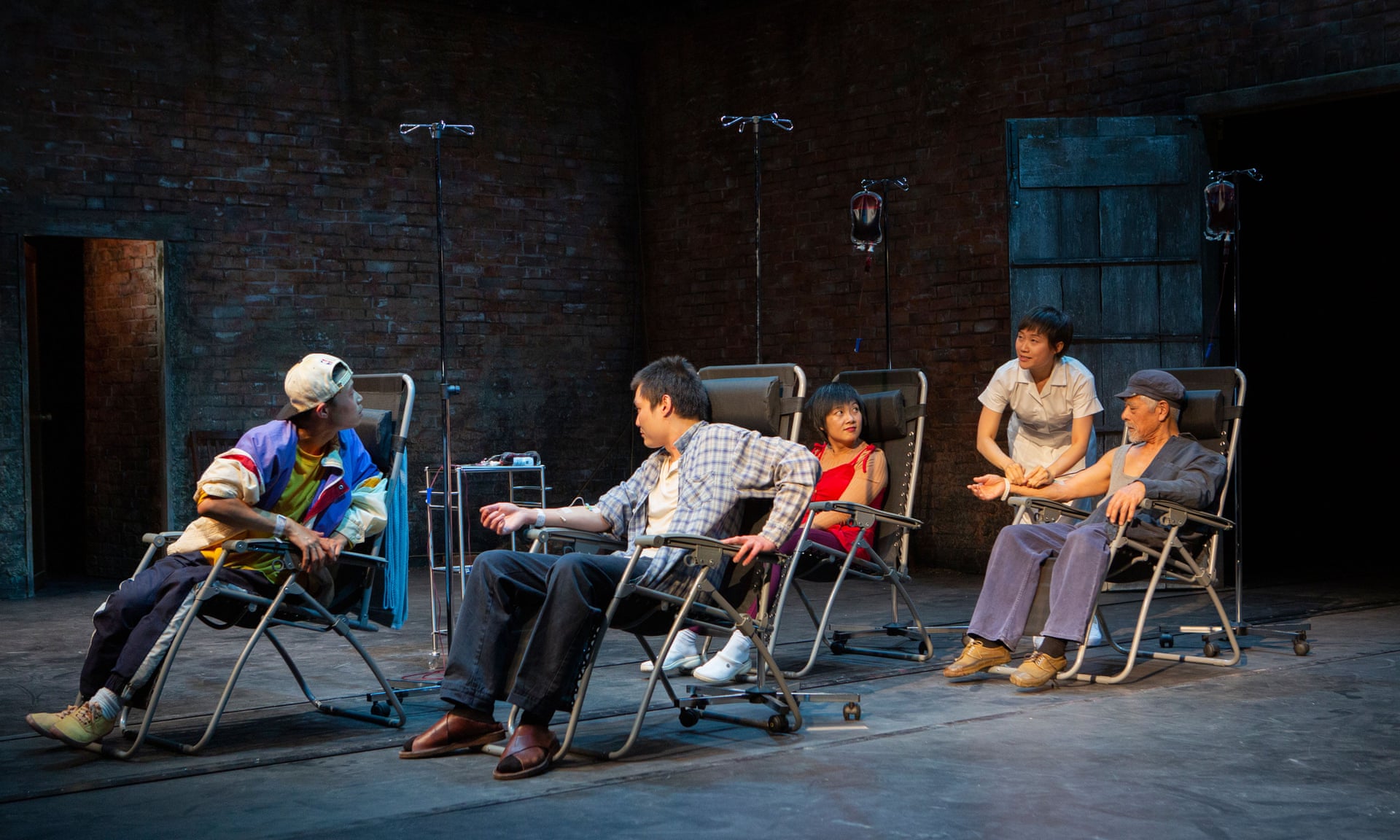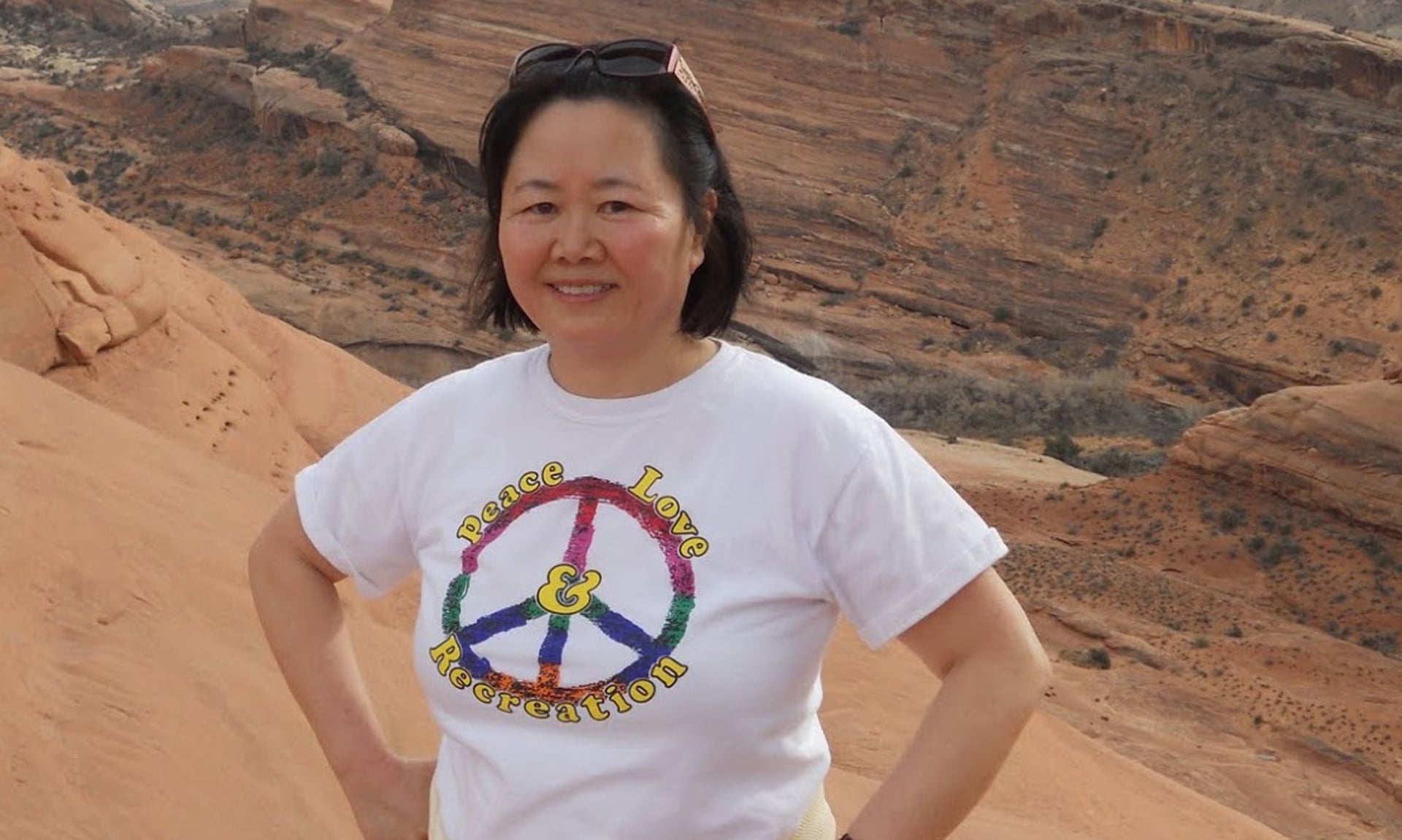Officials pile pressure on family of crusading doctor whose exposure of a 1990s cover-up is now hitting the stage
By Vanessa Thorpe
The King of Hell’s Palace, opening at the Hampstead Theatre, was inspired by Dr Shuping Wang’s true story.
Chinese security officials have been accused of targeting a whistleblower’s family and friends in a campaign to force a theatre to abandon a play based on her case.
Dr Shuping Wang, who exposed the spread of hepatitis and HIV infection through contaminated blood and plasma in China two decades ago, has said her relatives and former colleagues in Henan province are being told they should persuade her to drop the show at the London’s Hampstead Theatre.
She said the incident had revived memories of the original whistleblowing, but was determined that the show, The King of Hell’s Palace, should go ahead.
“The only thing harder than standing up to the government and their security police is not giving in to pressure from friends and relatives who are threatened with their livelihoods, all because you are speaking out,” she said.
“But even after all this time, I will still not be silenced, even though I am deeply sad that this intimidation is happening yet again.”
Wang said officials had also tried to obtain contact details for her daughter, in an attempt to exert pressure on her.
Wang said officials had also tried to obtain contact details for her daughter, in an attempt to exert pressure on her.
“I am particularly concerned for my daughter, who is very scared about being approached,” she said, adding that former colleagues in Beijing were afraid to answer her phone calls and emails since high-level officials had visited.
“Their reason is that this play will embarrass and damage the Chinese government and the reputations of specific officials.”
Shuping Wang.
The play, written by Frances Ya-Chu Cowhig and due to open on Friday, is a thriller inspired by the true story of Wang’s “extraordinary mission to expose a cover-up of epic proportions”.
Set in Henan province in 1992 and directed by Michael Boyd, former artistic director of the Royal Shakespeare Company, it centres on the danger a young ministry of health official finds herself in when she is recruited into a new medical trade in human blood and uncovers a terrible secret.
Boyd condemned the pressure that Wang’s relatives were under but said: “We will do what Shuping wants, and she really wants this play to go on.”
Boyd condemned the pressure that Wang’s relatives were under but said: “We will do what Shuping wants, and she really wants this play to go on.”
The plot closely follows the battle Wang and her colleagues waged to uncover the truth.
“I first reported the HCV [hepatitis] epidemic among blood donors to the Ministry of Health of PRC [People’s Republic of China] in 1992,” said Wang.
“Three years later, I discovered and reported a serious HIV epidemic among the plasma donors to the Health Bureau of Zhoukou Region and the ministry of health of the PRC ... Only after I reported my results to the central government in Beijing was any action taken. They requested that I falsify my information about the HIV epidemic situation among the plasma donors but I refused. To cover up the HIV epidemic situation, they broke up our clinical testing centre, hit me with a heavy stick and insulted me.”
Wang resisted pressure to close her laboratory, but the health bureau cut off the electricity and water supplies, forcing it to discard thousands of blood samples.
Wang, an American citizen, learned of the visits that were “causing panic” in her home town in a phone call from a relative last month.
The allegation of renewed pressure on Wang and her associates comes as both China’s government and its citizens become increasingly assertive internationally.
Wang resisted pressure to close her laboratory, but the health bureau cut off the electricity and water supplies, forcing it to discard thousands of blood samples.
Wang, an American citizen, learned of the visits that were “causing panic” in her home town in a phone call from a relative last month.
The allegation of renewed pressure on Wang and her associates comes as both China’s government and its citizens become increasingly assertive internationally.
The foreign policy maxim of the former paramount leader Deng Xiaoping – “hide your strength, bide your time” – has been cast aside as Chinese economic power and global influence has grown.
Instead, shows of strength have attempted to influence how China is depicted internationally.
“It is worrying that China is not bothered that it will be seen to be doing this. It is a sign of its confidence,” said Boyd.
In her statement, Wang said punishing relatives and colleagues of people who spoke out against the leadership was commonplace inside China.
“With bullying and censorship, the government has covered up the HCV and HIV epidemics in China very successfully,” she said.
“Why, in 2019, do they worry so much about a play being produced in London, 24 years after the events it depicts?”
“It is worrying that China is not bothered that it will be seen to be doing this. It is a sign of its confidence,” said Boyd.
In her statement, Wang said punishing relatives and colleagues of people who spoke out against the leadership was commonplace inside China.
“With bullying and censorship, the government has covered up the HCV and HIV epidemics in China very successfully,” she said.
“Why, in 2019, do they worry so much about a play being produced in London, 24 years after the events it depicts?”






